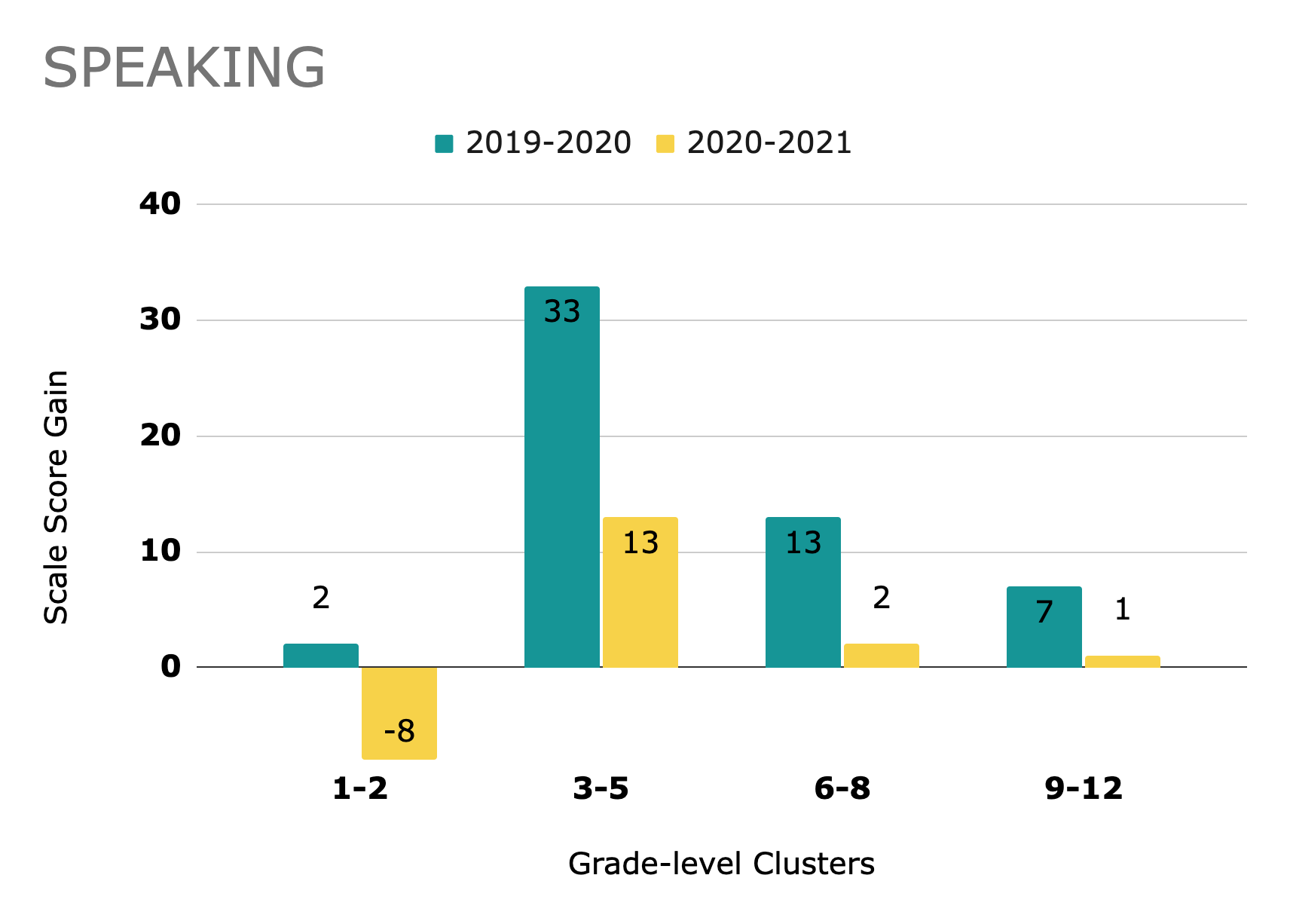The Language of Content
Articles from Speak Agent with math literacy and science resources, strategies, research, and program updates.
Speaking in Crisis
October 26, 2021 | Ben Grimley |
The latest report from WIDA shows a precipitous nationwide decline in language growth for multilingual learners (aka English Learners) in grades K to 8. The chart below compares the gains in WIDA ACCESS scores from the largely pre-pandemic era of early 2020 to this spring. Growth dropped by one-third for the grades 3-5 cluster and was virtually wiped out for middle graders. In fact, 6th graders experienced negative language growth. Yet while the numbers are dire across all of the language domains, there is one particular domain that has hit crisis proportions...
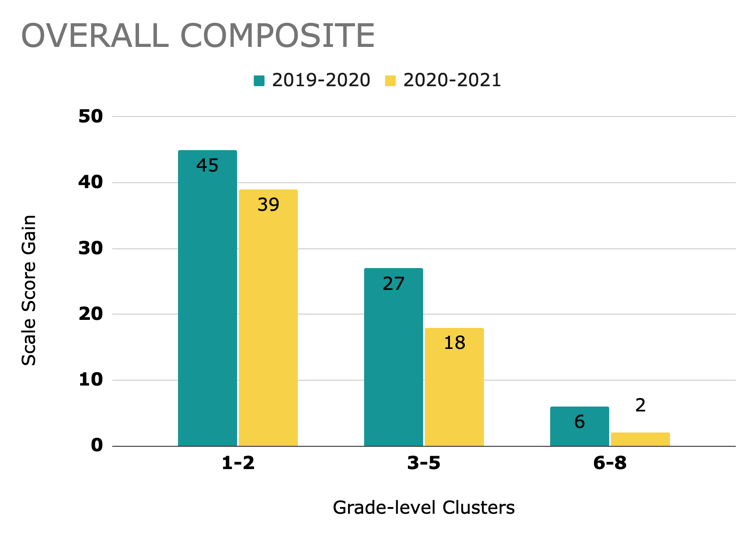 WIDA Research Report Figure 6: EL growth by grade-level cluster
WIDA Research Report Figure 6: EL growth by grade-level cluster
Speaking
Speaking is the language domain that has been by far hit the hardest by this pandemic. It is no surprise that early learners suffered large negative impacts due to remote learning in many places. But growth for upper elementary grades dropped by 60%. And middle and high school students experienced virtually zero growth in speaking scores after an entire year of instruction.
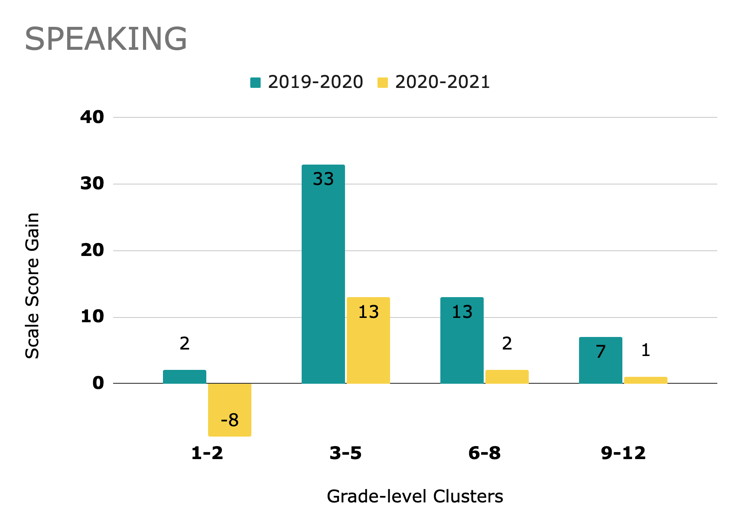
WIDA Research Report Figure 7: EL growth by individual domain and grade-level cluster
Why Is Speaking Important for STEM Subjects?
The 2020 WIDA ELD Standards Framework describes four Key Language Uses for each content area and grade band. Here is what is looks like for all grade levels from 2nd through 12th grade:

The full circle in the Explain and Argue columns mean that there is maximum emphasis placed on these two language uses for grades 2-12 in both math and science. Explaining and Arguing both require expressive language. Speaking is, of course, a critical part of expressive language. It is necessary for participating in classroom discourse, collaborating with partners on group projects, giving and receiving immediate feedback on ideas, and for improving academic English ability by negotiating for meaning.
The nationwide deficiencies we are seeing in Speaking, therefore, are incredibly damaging to academic achievement, not to mention future career and leadership prospects for millions of US students.
What Are We Doing About It?
Speak Agent has been building speaking capabilities into an ever-increasing number of its multimodal activities in both math and science courses from kindergarten up to high school. For example, students can now record their voice describing observations of scientific phenomena. They can respond to open-ended math questions by speaking the answers. Our latest platform upgrade in October just added a speaking and voice recording component inside all STEM stories in Speak Agent. Students may speak the answers to the contextual questions posed on each page.
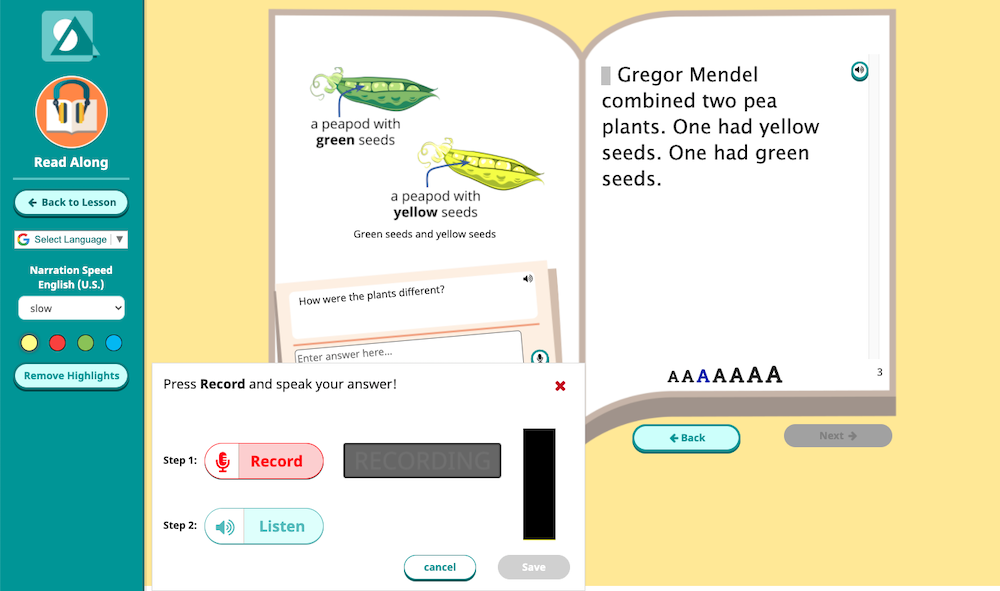
Earlier this year we also added a speaking component to our diagrams activity (below). As you can see, we integrate multiple communication modes into every Speak Agent activity!
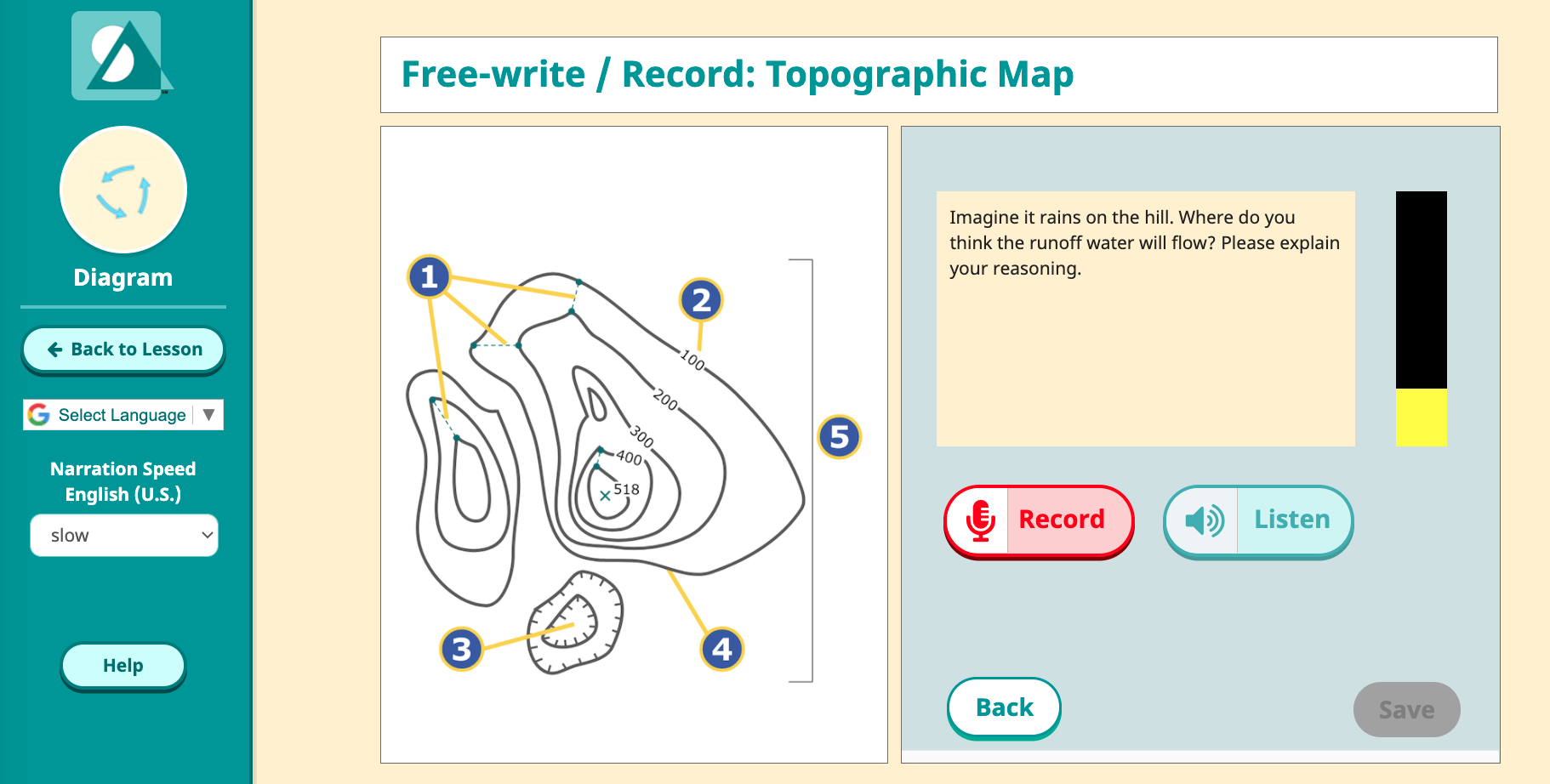
Please stay tuned this school year for more platform developments that will further enhance the speaking component. Speaking is in crisis and we are going to pull out all the stops to deliver our research-based strategies to every multilingual learner who needs the extra supports!
IMAGE CREDITS FOR GRAPHS: “Examining English Learner Testing, Proficiency, and Growth: Before and Throughout the COVID-19 Pandemic.” Sahakyan, N. and Cook, G. Wisconsin Center for Education Research, University of Wisconsin–Madison, October, 2021.
Read Also:
- ClassTech Tips Blog: How to Learn Math and Science with Language Support
- eSchool News: How a Major MD District Boosted Middle Math Achievement
